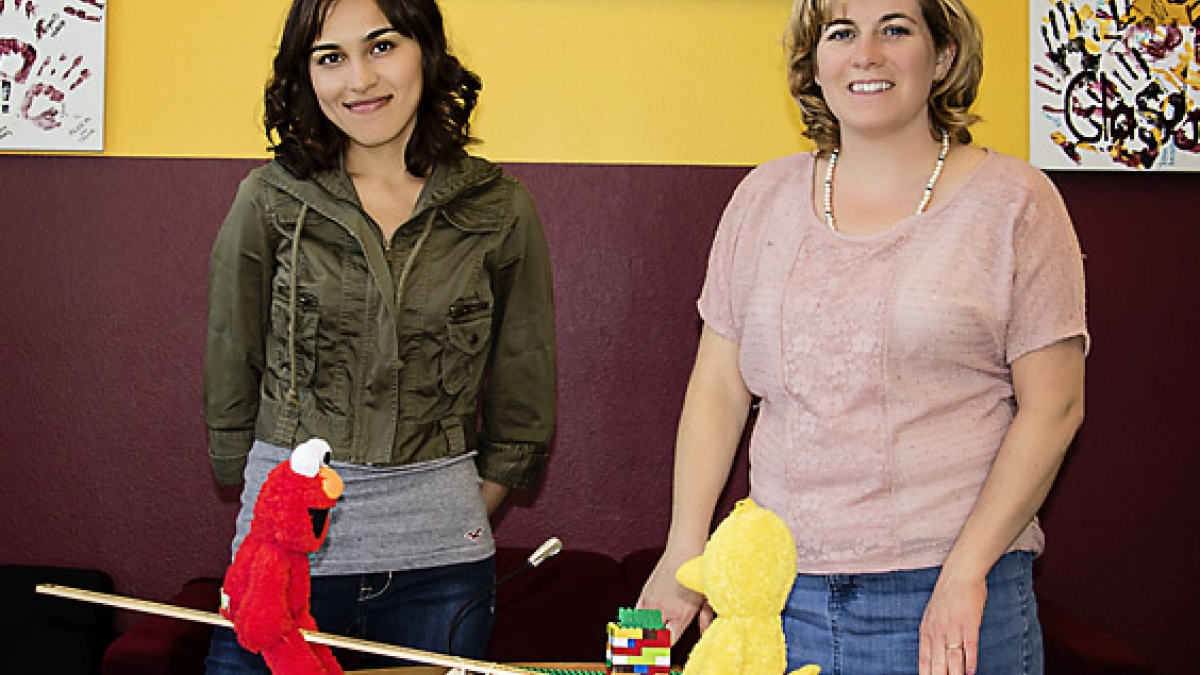NSF-funded project targets youngsters' interest in science

It’s generally recognized that in order to compete in the 21st century economy, the United States needs to encourage young people to become educated about science and consider pursuing science-related careers. But studies have shown that students’ interest in many science-related fields, while relatively high in the early middle school years, tends to decline in the high school years and into college.
Susannah Sandrin, a faculty member in ASU’s New College of Interdisciplinary Arts and Sciences, has launched a project to investigate and address this phenomenon. “We would like to know what is happening before this decline begins,” said Sandrin, assistant clinical professor in New College’s School of Mathematical and Natural Sciences. New College is the core college on ASU's West campus.
Sandrin’s Families and Science Project works with fourth-graders and their parents from local partner school districts in metropolitan Phoenix, including the Pendergast, Littleton and Washington Elementary School Districts. The three-year effort is a collaborative project with a faculty member at the University of Wisconsin-Oshkosh and is funded by a $500,000 research award from the National Science Foundation.
“We want to learn more about parents’ and children’s attitudes about science, and their interest within different areas of science,” Sandrin said. “We also want to provide schools and families with more information about effective strategies for encouraging their children in science-related fields. The study will collect information from at least 150 families.”
The Families and Science Project is benefiting from the expertise of Sandra Simpkins, associate professor in ASU’s T. Denny Sanford School of Social and Family Dynamics on the Tempe campus. Simpkins is serving as research consultant for the project.
“Several researchers have examined best practices in the science classroom, but very few have looked at what families do to help children in science,” Simpkins said. “Families are the first socializers of children and an important influence on their development. This project will help deepen our understanding of how families matter.”
Fourth-graders participate in the study with one of their parents. During the session, the parent and child spend the majority of the time solving hands-on science problems together. Child participants also take a brief assessment of science knowledge and answer some interview questions. Parents fill out a questionnaire while the child answers the interview questions in the same room. While sessions are video and audio recorded, participants are guaranteed anonymity.
Sandrin and her student researchers also will be hosting family science fun nights in the collaborating school districts. These activities will feature a half-dozen or more stations, each with a different science activity. The organizers will distribute information pamphlets to parents, with tips and websites providing information about encouraging their children in science-related studies and careers.
Two ASU students are serving as student researchers with Sandrin. New College student Teena Manuel is majoring in psychology, while Miriam Quiňones is a secondary education/Spanish major in ASU’s Mary Lou Fulton Teachers College.
Manuel, currently a sophomore, became interested in research through her participation as a freshman in the New College Undergraduate Inquiry & Research Experiences (NCUIRE) program with psychology faculty member Perla Vargas in New College’s School of Social and Behavioral Sciences. She has worked with Sandrin on ExSciTE, a program that introduces middle-school students to college and potential majors and career paths.
“The research aspect of the Families and Science Project intrigued me immediately,” Manuel said. “So far it has been really fun and rewarding to learn how to set up a research project and how to work ethically and safely.”
Quiňones originally became involved in the project to serve as a translator for Spanish-speaking participants but then increased her role to student researcher. “This project has expanded my way of thinking about science. Sometimes I am amazed about how smart the fourth-graders we work with are,” she said. “I also feel it is helping prepare me to become a teacher. I don’t intend to be an elementary school teacher, but having the opportunity to work with children gives me a feel of what it is to be someone others depend on.”
The Families and Science Project has established a website providing information and resources; it may be visited at newcollege.asu.edu/familiesandscience.

